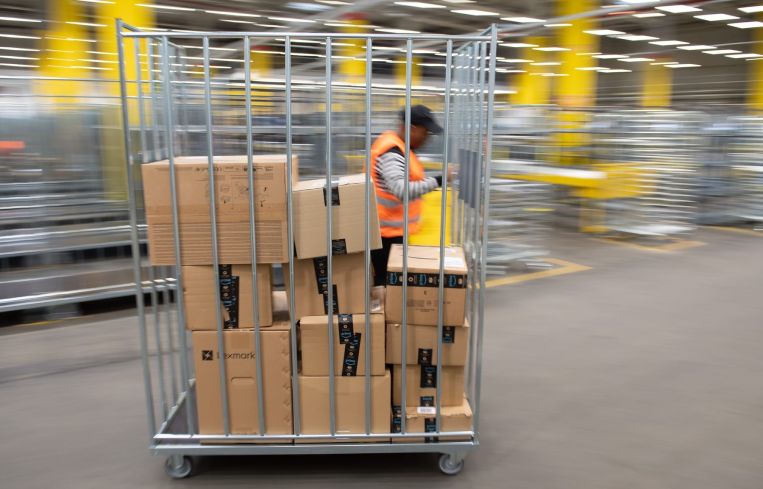Labor Board Grants New Union Election for Amazon’s Alabama Warehouse
By Celia Young November 30, 2021 11:49 am
reprints
A regional director for the National Labor Relations Board (NLRB) formally called for a new election for Amazon workers fighting for a union at a warehouse in Bessemer, Ala., after a hearing officer found that Amazon violated labor law and interfered with the April election.
The Retail, Wholesale and Department Store Union (RWDSU), which hoped to represent workers in the e-commerce giant’s first union in the country, alleged that Amazon threatened workers into voting against the union and tried to make it seem like the multibillion-dollar company controlled the election. Warehouse employees ultimately voted against unionizing in April with only 738 in favor out of a total of 3,125 ballots cast.
“Today’s decision confirms what we were saying all along — that Amazon’s intimidation and interference prevented workers from having a fair say in whether they wanted a union in their workplace,” Stuart Appelbaum, president of the RWDSU, said in a statement. “That is both unacceptable and illegal. Amazon workers deserve to have a voice at work, which can only come from a union.”
While Amazon promised to challenge the reelection recommendation in August, when a hearing officer first recommended it, the company declined to respond to a request for comment on whether or not it would appeal Monday’s decision.
“Our employees have always had the choice of whether or not to join a union, and they overwhelmingly chose not to join the RWDSU earlier this year,” Kelly Nantel, a spokesperson for Amazon, said in a statement. “It’s disappointing that the NLRB has now decided that those votes shouldn’t count. As a company, we don’t think unions are the best answer for our employees.”
The director of Region 10 for the NLRB, Lisa Henderson, wrote in her decision Monday that Amazon undermined the election by pressuring the U.S. Postal Service to install a ballot collection box at the warehouse, which “gave a strong impression that [Amazon] controlled the process.”
“This dangerous and improper message to employees destroys trust in the board’s processes and in the credibility of the election results,” Henderson added. “I specifically disapproved of the employer’s suggestions for making voting ‘easier’ because the employer is neither responsible for conducting elections nor is it tasked or authorized to aid the process.”
Henderson also found that Amazon attempted to poll employees on their union leanings in mandatory meetings by telling workers they could take free “Vote No” pins and other items in full view of human resources officials.
In its initial complaint, the RWDSU also alleges that Amazon hired police officers to patrol the distribution center parking lot where the company had placed the ballot collection box and told employees that they would lose wages, health insurance, time off and retirement benefits if they voted to unionize. Amazon has denied allegations that it intimidated employees.
“While we’ve made great progress in important areas like pay and safety, we know there are plenty of things that we can keep doing better, both in our fulfillment centers and in our corporate offices, and that’s our focus — to work directly with our employees to keep getting better every day,” Nantel said in a statement.
The blow to Amazon’s push against employee unionization drives comes after workers at a Staten Island warehouse, known as JFK 8, failed to garner the necessary support to hold a union election and withdrew their petition for a vote after filing in late October.
Union organizers and workers at that warehouse have complained of gender discrimination, anti-union messaging and poor coronavirus protection policies that left workers at risk of illness and death. Amazon has previously denied those claims.
Celia Young can be reached at cyoung@commercialobserver.com.



